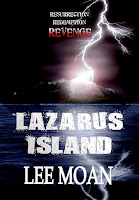What is a Slow Learner To Do? Guest Post by Lee Thompson
So yeah, I’m a slow learner. My buddy Ken made a blog post recently about discipline, how he wished he had more of it. That’s one thing I’ve always had, luckily. Whether I was imagining, training, writing songs, or whatever, I was committed and they were a priority—those things occupied space in the forefront of my mind even when I was doing something else. I’d work out the images, the motifs, the substance and structure constantly and consistently.
Something I read a long time ago that I think has a lot of benefits if put into practice, especially if you’re a slow learner, is Visualization. The big V. Powerful stuff. Ground shaking creators use it, Olympic athletes, and so many others who are at the top of their game. I don’t care for Donald Trump but I think I read that he used it frequently.
But numeral uno for a slow learner is discipline. Everything else stems from that.
Discipline spawns consistency, which in turn bears the fruits of results and knowledge.
But like any exercise (steps toward higher ground), just going through the motions isn’t enough. From my experience the best way to hone any skill is to focus on one thing at a time.
With boxing you can have a ten minute session of nothing but combinations, another segment for footwork, another for defensive skills like bobbing and weaving; with guitar, running scales over chords or learning how the modes fit in key, finding the right notes, learning to read music, learning by ear, learning new rhythms. And in writing: having a day to study structure (or experiment with it), or focusing on finding every area where the description in a WIP is so run-of-the-mill you want to knock your teeth out, and instead take those areas, highlight them and be creative (all the while training yourself to put more of yourself into it instead of just hoping someone will get something out of it; learning how you see the world, whether drab or beautiful or both instead of just bland. Actually, I’m convinced that writers whose stories are flat stems from their view of the world as flat and one dimensional, each little thing a chore instead of an opportunity. The only cure I know for that is to adjust your perspective, not an easy feat, but doable.)
I think a lot of my characters are slow learners. It’s what I know and live. It’s painful, but once a lesson is hard-won and you bear the scars of those dark moments you don’t forget them. Those kinds of memories are vivid, a blast of cold air on sunny days, a blaze in the dead of winter.
I think that we train ourselves to fail, to give up too easily, to believe the lies we tell ourselves. We make things harder than they really are. We over-think instead of following our instincts and intuition. I’m not you and you’re not me, but we’ve got patterns that work for us just like we do stumbling blocks we throw ahead of us because we’re frightened; things that move us; things we hate and adore; experiences we can draw from and use to make our writing powerful, immediate and unique. Let’s do that. Not everyone will get it. But we have to do our best and settle for nothing less. Stop thinking your competition begins and ends with everyone else. It doesn’t. It begins inside.
Search out ways to discipline yourself, to be honest with yourself, to dig deeper than you ever have before and ever thought you could.
Never quit searching, asking questions, or striving.
--Lee Thompson
Nursery Rhymes 4 Dead Children is available for iPad and iPhone (click image below to go to store).


Comments
she just wants i must be focus on my work and her